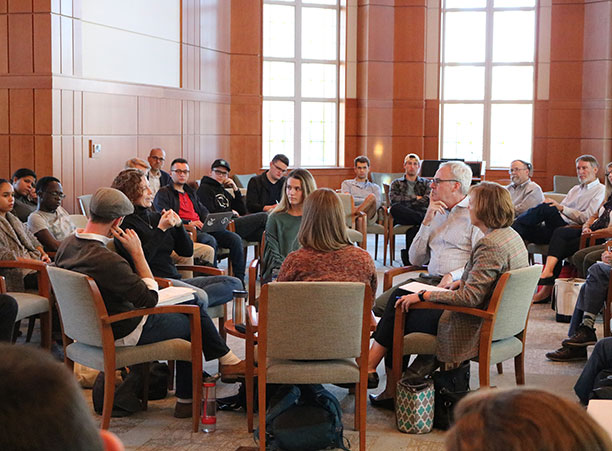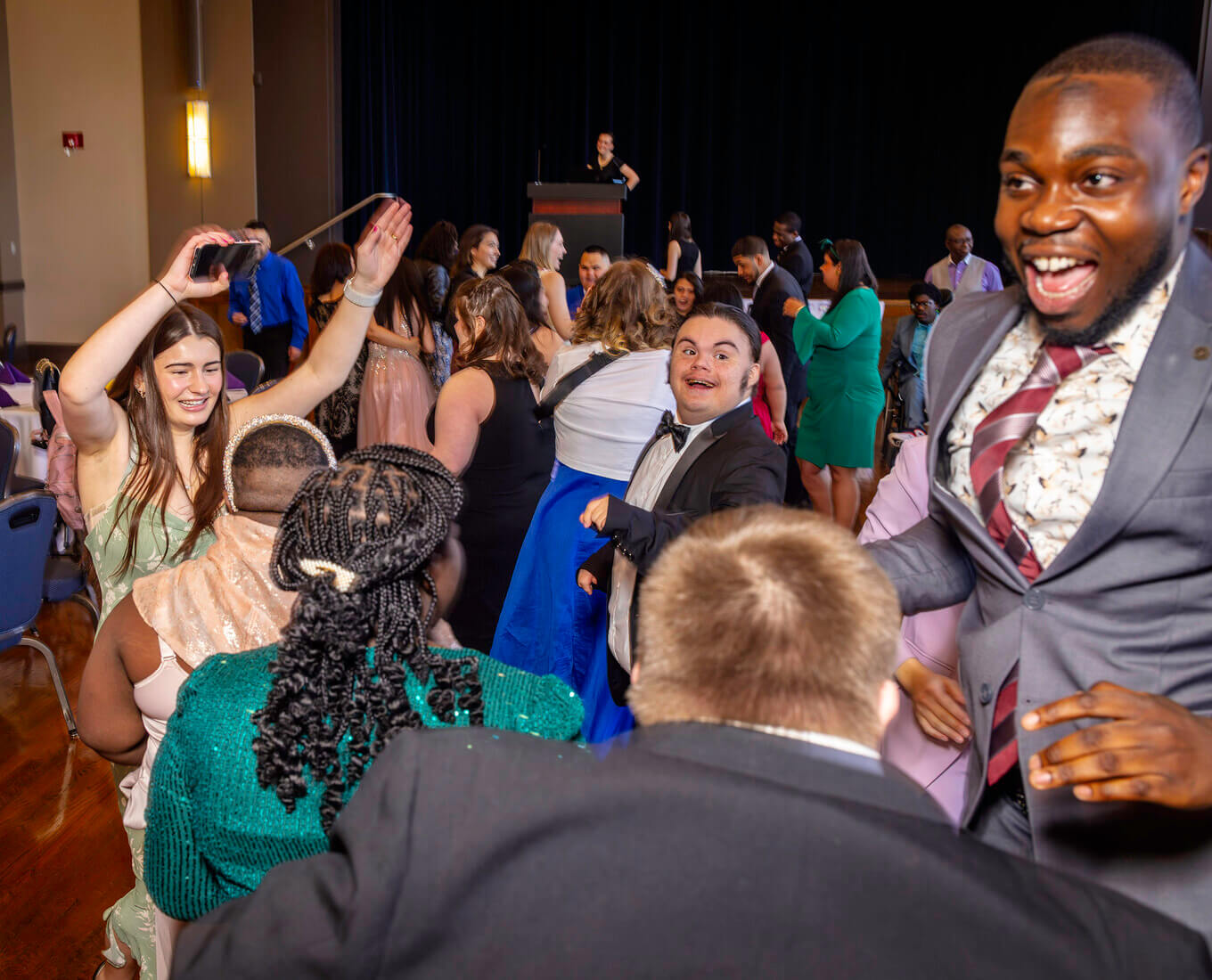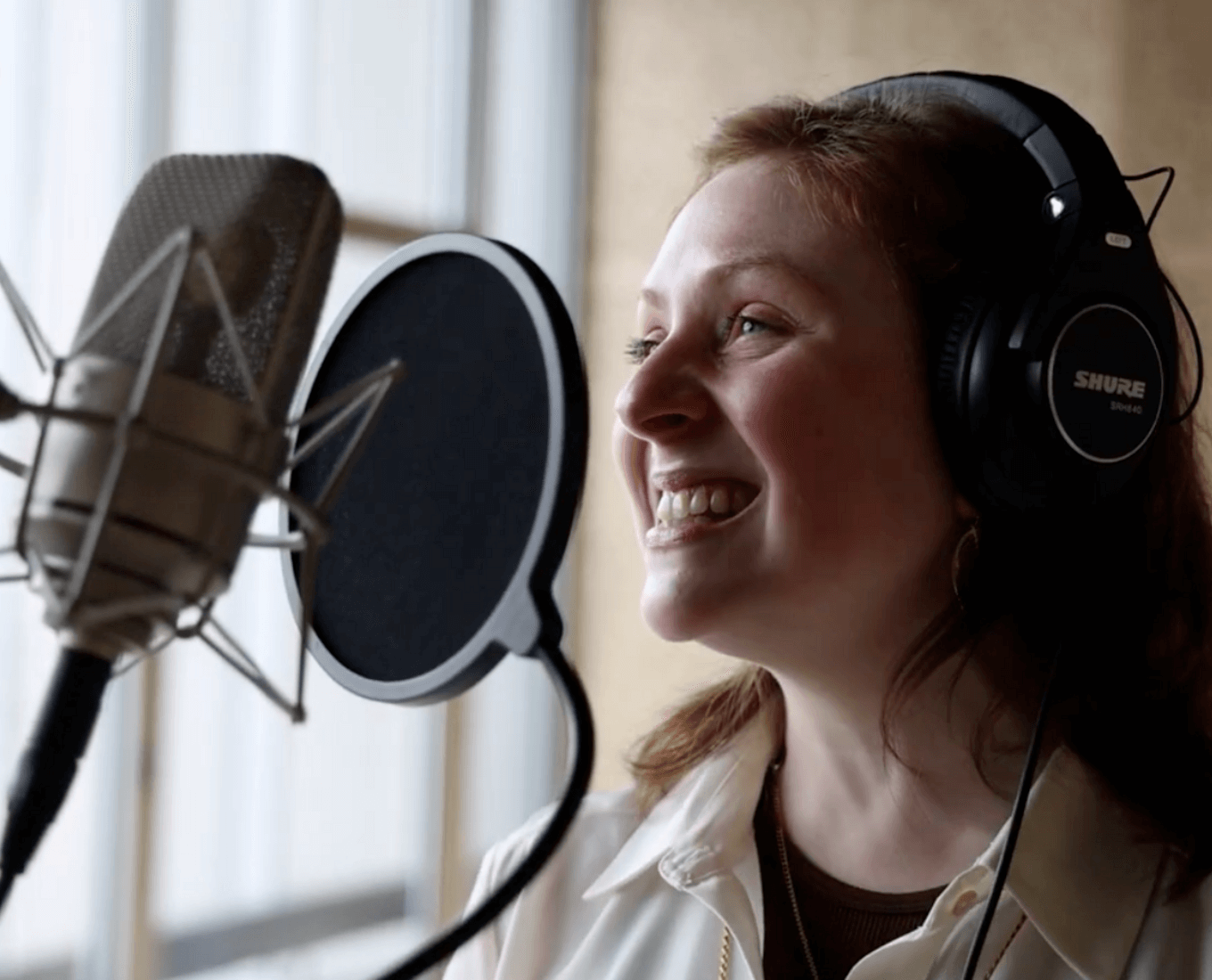double major, and co-chair of the campus club Eco-Action. "People think, 'Oh, the government needs to make a change or the whole world needs to make a change — but it's local action that's actually going to make that difference."
That theme of local advocacy was on full display in the standing-room-only crowd in Rehm Library in late October for a campus-wide discussion on the book "The Uninhabitable Earth: Life After Warming" by David Wallace-Wells. Held in a fishbowl format, where a small group of "fish" lead the discussion, students, faculty and staff engaged in an important, timely conversation about the book, which had been chosen as the first-year book for the Class of 2023.
The group — which included LeBlanc; Kendy Hess, Brake Smith Associate Professor of Social Philosophy and Ethics in the philosophy department; Ellis Jones, assistant professor of sociology; Katherine Kiel, professor of economics; Sara Mitchell, associate professor of biology; and was moderated by Thomas Landy, director of the McFarland Center for Religion, Ethics and Culture — used their varied backgrounds to give insight into different issues, such as the possibility of implementing a tax on carbon and how to discuss the gravity of climate change to those who are skeptical.
"Because climate change is a reality that intersects with other urgent crises such as environmental degradation, poverty, migration and international conflict, the issues explored in the book can be approached from the perspective of every discipline at the College," says Matthew Eggemeier, associate professor of religious studies and dean of the Class of 2023.
 Students, faculty and staff attend a fishbowl discussion about the first-year book, "The Uninhabitable Earth: Life After Warming." Photo by Rebecca Blackwell '16
Students, faculty and staff attend a fishbowl discussion about the first-year book, "The Uninhabitable Earth: Life After Warming." Photo by Rebecca Blackwell '16Back on campus, student momentum has continued. Recently, the Student Government Association put forth a student referendum for a "Green Fund," a financial resource for sustainability projects that would be funded by both a $10 increase to the annual Student Activity Fee and outside donors. Students voted 78% in favor, passing the referendum with a resounding "yes."
The College's commitment to climate change includes embracing institutional changes. The College recently announced it has reduced its carbon emissions by nearly half, well on the way to the goal of being completely carbon neutral by 2040. And the Holy Cross community isn't the only one taking note of green commitment. The College was also recently named one of the most environmentally responsible colleges in the country by The Princeton Review's Guide to Green Colleges. Holy Cross has been on the list since its inception in 2010.
As LeBlanc urges, "Talk to people around you and have those conversations — seriously. Bring it up. Don't just let it go by and don't let your mind just sit there."


